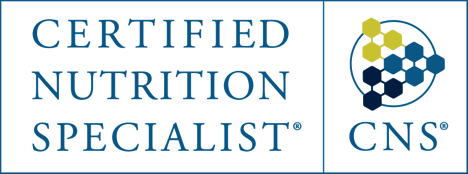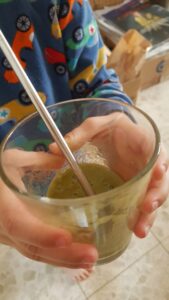Roni Enten Vissoker PhD
CNS, LDN
Individualized Biomedical Nutritionist


Home » Healthy diets for autism and ASD
Implementing a healthy diet for your autistic child: 5 changes you can  make today
make today
Good nutrition is critical for the healthy development of all children. According to the World Health Organization, nutrition is essential for good health and development during the early years; if kids do not get the right amounts of protein, fat, and carbohydrates and micronutrients like zinc, vitamin A, iodine, and iron, they can become ill, and experience delayed motor and cognitive development that can have long lasting adverse effects past childhood.1
The nutritional needs of children with autism are often higher than what is recommended for the general pediatric population, and compounded by a range of health concerns, from gastrointestinal dysfunction, systemic inflammation, immune dysregulation, and oxidative stress. Thus there is no question that good nutrition is essential to assess and implement for these children.
Furthermore, research specific to ASD emphasizes the role of nutrition in symptoms such as anxiety, picky eating, and poor sleep; even behavior problems such as aggression, and symptoms such as brain fog, sensory issues, disconnects and poor socialization, can be supported with healthier, balanced diets.
So, there is no question that a healthy and balanced diet is essential for children with ASD – but even if you have not begun to work with an autism nutrition professional just yet, there are things that you can do right now to help your child begin a healthy and balanced autism diet plan.
Many parents are already aware of the major impact that the above ingredients can have on their child. Sugar and food additives can cause hyperactivity, poor attention span, aggressiveness, irritability, headaches, and can even be addictive. MSG (monosodium glutamate) can trigger the same in many children. Special diets such as the Feingold Diet which has been in use for many years, are based on the removal of colors and preservatives, and can lead to significant improvements in unwanted behaviors and other symptoms.
In addition, an increasing body of research points to the negative role of pesticides, which are concentrated in non-organically grown or conventionally grown food, on child health. A review of literature (2008) reported that studies in older infants and young children point to a negative association between pesticide exposure and development. In young children between ages of 2-3, two different studies reported an increase in pervasive developmental disorder (PDD) with increased levels of organophosphate exposure.2
Finally, if you know what they are, remember to remove allergenic foods. Allergists and nutrition professionals can help you identify these using special testing and or/elimination diets and ensure balanced nutrition in their absence.
Fresh vegetables and fruits are loaded with antioxidants and phytochemicals which are naturally highlighted for us in bright colors, such as anthocyanins that make blueberries blue, and tomatoes which get their ruby hue from lycopene. These provide powerful anti-oxidant protection and help lower the inflammation that is commonly present in the bodies of children with ASD, and they are great sources of essential vitamins, minerals, fibers and more. To get the maximum disease-fighting power that phytochemicals can provide, aim for foods that represent all colors of the rainbow, especially orange and red (5 1/2 cups per week) and dark green (1 1/2 cups per week).
Note: If you have a picky eater, consider alternate ways to get picky eaters to consume fruits and veggies such as juicing, blending, pureeing, baking, frying, and dehydrating. Fresh and raw vegetable juice can be especially healthy as they contain many times more vitamins and phytonutrients and a higher concentration of nutrients, chlorophyll and phytonutrients – so sensitive children can get nutrients without the need to chew their vegetables.
Protein provides essential amino acids which are building blocks for muscle building and tissue repair, brain neurotransmitters, immune cells, enzymes and more. For most children, (grass fed, organic) animal protein is easier to digest than vegetable protein sources and has more concentrated amounts of protein for children in need of healing the gut. Pastured eggs are also a great option for boosting protein. For many kids, just adding quality protein to their breakfast meal can do wonders for mood and focus.
With regards to dietary fats, these must be adequate and high quality too. Fats include oils (such as anti-inflammatory olive and coconut oils), animal fats (which provide important saturated fat), and nuts/seeds, as well as essential fatty acids (EFA) and all aid in the absorption of fat-soluble vitamins A, D, E and K. Fat is a precursor for the production of hormones and mediators and remember, fat and cholesterol, especially in infancy and early childhood, is essential for neurological development and brain function. Children ages 1-3 need 30-40% fat in their diets.
Did you know that trillions of bacteria live in your intestines, and that your body houses a greater number of bacteria than your own cells? Unfortunately, common Western diets heavy in processed foods can disturb the balance of your gut microbes, which can lead to gastrointestinal symptoms and in the case of autism, many studies have reported altered gut microbiomes that may be a root cause for a variety of core symptoms and GI dysfunction.3 Up to 90% of children with autism/ASD suffer from some sort of chronic gastrointestinal condition4 and children with autism/ASD have higher rates of GI dysfunction than typically developing children.5
Humans have traditionally balanced our gut bacteria by eating fermented foods for thousands of years and enjoyed the many benefits – acidic fermentation byproducts that lower the intestine’s pH, decreasing the chance that bad bacteria can survive, synthesis of many vitamins the body needs (vitamins B1, B2, B3, B5, B6, B12 and K) and prevention of diseases such as obesity, asthma and chronic inflammatory conditions such as inflammatory bowel disease. Want to get started adding fermented foods to your family’s diet? Consider yummy Kombucha, pickles, sauerkraut, yogurt, kefir and more.
[Note – when introducing fermented foods, start very slowly to avoid temporary gastrointestinal discomfort. Individuals who suspect small intestinal bacterial overgrowth should also avoid fermented foods]
Implementing all of the above is a fabulous way to start but for best results, consult a professional to further individualize and optimize your child’s nutrition and dietary interventions.
References
Comments Off on Healthy diets for autism and ASD